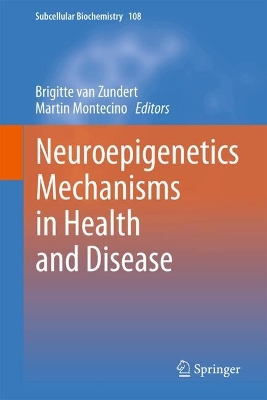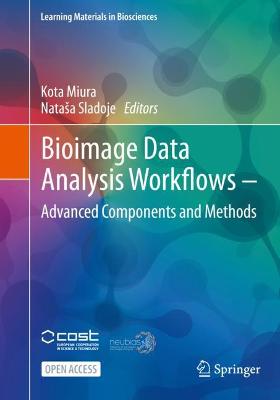Flow Cytometry
 portes grátis
portes grátis
Flow Cytometry
Principles, Applications, and Clinical Perspectives
Agrawal, Devendra K.; Sobti, Ranbir Chander; Krishan, Awtar
Springer Verlag, Singapore
01/2025
487
Dura
9789819745524
Pré-lançamento - envio 15 a 20 dias após a sua edição
Descrição não disponível.
Chapter 1. Flow cytometry: historical perspectives, fundamentals, past and present instrumentations and applications.- Section 1. Instrumentation.- Chapter 2. Instrumental and experimental quality control in flow cytometry.- Chapter 3. Redox landscape in flow cytometry.- Section 2. Applications in basic sciences.- Chapter 4. Unravelling biological complexities through flow cytometric applications.- Chapter 5. Illuminating cell dynamics: the versatility of flow cytometry in molecular biology analysis.- Chapter 6. Instrumental role of flow cytometry in molecular biology advancements.- Chapter 7. Flow cytometry: revolutionizing cellular analysis in spectral and microfluidic dimensions.- Chapter 8. Immunological kaleidoscope: flow cytometry's colorful insight into cells.- Chapter 9. Flow cytometric immunophenotyping of leukocytes and neutrophils subsets in bone marrow, peripheral blood and liver tissue.- Chapter 10. Flow cytometric analysis of plant nuclear DNA content in plant homogenates.- Chapter 11. Flow cytometry in microbiological sciences.- Section 3. Applications in clinical and transplantation sciences.- Chapter 12. Applications of flow cytometry in scientific research and the clinic.- Chapter 13. Flow cytometric monitoring of the redox status in health and disease.- Chapter 14. multi-color flow cytometry in medical research: a versatile tool to evaluate the rare immune cells in the pathogenesis of chronic viral infections.- Chapter 15. Flow cytometry approach to differentiate resident versus infiltrated macrophages in atherosclerosis.- Chapter 16. Cytokine analysis in leukemia and minimal residual disease (mrd) detection through flow cytometry.- Chapter 17. Flow cytometry in transplantation.- Chapter 18. Applications of flow cytometry in transplant medicine.- Chapter 19. Flow cytometry based residual disease monitoring in haematolymphoid neoplasm.- Chapter 20. Clinical significance of flow cytometry in solid organ transplantation.- Section 4. Translational, stem cells and regenerative studies.- Chapter 21. An introduction to multiparametric flow cytometry in translational research.- Chapter 22. Stem cels and micro vesicles analysis.- Chapter 23. Translational flow cytometry for repopulating cells in regenerative medicine.- Section 5.- Chapter 24. Flow cytometry in drug design and delivery.- Chapter 25. Flow cytometry in toxicology:illuminating cellular responses.- Section 6. Flow cytometry and environmental studies.- Chapter 26. Exploring the role and potential of flow cytometry in advancing environmental research.- Chapter 27. Role of flow cytometry in the analysis of micro/nano plastics.
Este título pertence ao(s) assunto(s) indicados(s). Para ver outros títulos clique no assunto desejado.
Cell sorting;Chromosome analysis;Flow cytometry;Microanalysis;Stem Cells
Chapter 1. Flow cytometry: historical perspectives, fundamentals, past and present instrumentations and applications.- Section 1. Instrumentation.- Chapter 2. Instrumental and experimental quality control in flow cytometry.- Chapter 3. Redox landscape in flow cytometry.- Section 2. Applications in basic sciences.- Chapter 4. Unravelling biological complexities through flow cytometric applications.- Chapter 5. Illuminating cell dynamics: the versatility of flow cytometry in molecular biology analysis.- Chapter 6. Instrumental role of flow cytometry in molecular biology advancements.- Chapter 7. Flow cytometry: revolutionizing cellular analysis in spectral and microfluidic dimensions.- Chapter 8. Immunological kaleidoscope: flow cytometry's colorful insight into cells.- Chapter 9. Flow cytometric immunophenotyping of leukocytes and neutrophils subsets in bone marrow, peripheral blood and liver tissue.- Chapter 10. Flow cytometric analysis of plant nuclear DNA content in plant homogenates.- Chapter 11. Flow cytometry in microbiological sciences.- Section 3. Applications in clinical and transplantation sciences.- Chapter 12. Applications of flow cytometry in scientific research and the clinic.- Chapter 13. Flow cytometric monitoring of the redox status in health and disease.- Chapter 14. multi-color flow cytometry in medical research: a versatile tool to evaluate the rare immune cells in the pathogenesis of chronic viral infections.- Chapter 15. Flow cytometry approach to differentiate resident versus infiltrated macrophages in atherosclerosis.- Chapter 16. Cytokine analysis in leukemia and minimal residual disease (mrd) detection through flow cytometry.- Chapter 17. Flow cytometry in transplantation.- Chapter 18. Applications of flow cytometry in transplant medicine.- Chapter 19. Flow cytometry based residual disease monitoring in haematolymphoid neoplasm.- Chapter 20. Clinical significance of flow cytometry in solid organ transplantation.- Section 4. Translational, stem cells and regenerative studies.- Chapter 21. An introduction to multiparametric flow cytometry in translational research.- Chapter 22. Stem cels and micro vesicles analysis.- Chapter 23. Translational flow cytometry for repopulating cells in regenerative medicine.- Section 5.- Chapter 24. Flow cytometry in drug design and delivery.- Chapter 25. Flow cytometry in toxicology:illuminating cellular responses.- Section 6. Flow cytometry and environmental studies.- Chapter 26. Exploring the role and potential of flow cytometry in advancing environmental research.- Chapter 27. Role of flow cytometry in the analysis of micro/nano plastics.
Este título pertence ao(s) assunto(s) indicados(s). Para ver outros títulos clique no assunto desejado.







